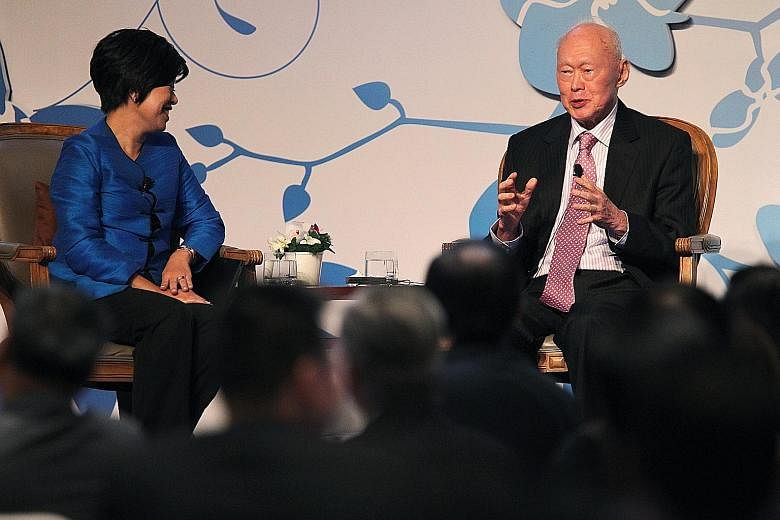Just what would Singapore's founding father Lee Kuan Yew say if he was asked for advice on how the United States and China might avoid a clash that no one wants?
This is the intriguing question posed by Harvard Professor Graham Allison in the conclusion of his book discussing the so-called Thucydides trap - where a rising power threatens to eclipse a rival, provoking conflict.
He argues that if China's President Xi Jinping and US President Donald Trump listened to Mr Lee, they would focus on what matters most: their domestic problems.
"What is the single largest challenge to America's national security today? What poses the single largest threat to America's standing in the world? The answer to both questions is found in failures of the American political system," writes Prof Allison.
"Ask the same questions of China and the answers are again the same: failures of governance. Honest observers in both countries are increasingly recognising that neither 'decadent' democracy nor 'responsive' authoritarianism is fit for meeting the 21st century's severest tests."
The US, he laments, is paralysed by poisonous partisan bickering, which has undermined trust in the government. This has hampered its ability to make critical decisions, including on the need to invest in education and research.
China, for its part, was also hampered by an outmoded "operating system", with overweening central controls stymieing reforms and innovation, making it too closed to new thinking and ideas.
"If the leaders of each society grasped the seriousness of the problems it faced on the home front, and gave them the priority they deserved, officials would discover that devising a way to 'share the 21st century in Asia' was not their most serious challenge.
"Will they recognise this reality? Will either or both nations summon the imagination and fortitude to meet their domestic challenges? If they do so, will they be skilled enough to secure their vital interests without stumbling to war?"
Indeed, the sheer scale of the challenge posed by the "structural shift" caused by a rising China calls for a new approach to economic and foreign policy in the US, two seasoned China hands at the Centre for American Progress - Ms Kelly Magsamen and Ms Melanie Hart - argue in a thoughtful essay in the latest issue of Foreign Policy magazine.
"A US-China relationship that works for the United States will ultimately be driven by how educated and healthy Americans are, whether their children and grand-children have viable futures, whether the US continues to dominate scientific research and higher education, whether the country has functioning infrastructure, whether it can maintain a thriving immigration system to sustain its economic growth, and whether its democratic institutions remain functional and resilient," they say. "In sum, the United States needs to get its own house in order...
"(It) should launch a national competitiveness initiative that includes moonshot investments in research and development, once-in-a-generation public infrastructure investments and significant tuition assistance for graduate education in science, technology, engineering and mathematics degrees. That would get Beijing's attention.
"Competing effectively with China does not require the United States to launch a Cold War or end all cooperation with Beijing. That would be unrealistic and counterproductive to long-term US interests. The US can walk and chew gum at the same time."
Another variation on this theme emerged in the Asia Society's task force report on the China challenge, in which it called for "smart competition" on the part of the US.
"Smart competition involves building on America's strengths to compete effectively with China while maintaining as much cooperation as possible on areas of common interests; building international coalitions to press China to follow international laws and norms; negotiating resolutions to key disputes wherever feasible; and preserving and updating those international institutions that have enhanced the welfare and security of both countries and the rest of the world for so many decades."


